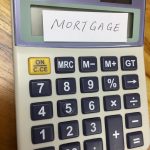In the question of HDBs vs ECs prospective homeowners must look at many factors before making the final decision – and the decision will not be an easy one.

As a home owner, there are many things you need to consider before you settle on your home of choice. You will think about the location, the nearby amenities, size of your new home and etc. Among the things to consider, the top priority is to consider whether you want to go for an EC or HDB (you also have to choose between BTO and resale!). To help you make a more informed decision that you won’t regret paying for, here are six factors you should consider when making the choice between HDB or an EC.
1. HDB vs EC: Eligibility
Table of Contents
To ensure that public housing is affordable, HDB introduced the concept of income ceiling for all HDB buyers. There are income ceilings for HDB flats of different sizes, from S$7,000 for 2-room flats (and some 3-room flats) to S$14,000 for 4-room or bigger flats. The newer generation of flats (multi-generational 3G flat) has a higher income ceiling of S$18,000 as there are essentially two families living under one roof.
But what if your combined income exceeds S$12,000? The authorities noted that there are some couples who exceeded the income ceiling of HDB flats. Thus, ECs were introduced for this group of people known as the “Sandwiched Class”. (Sandwiched because they cannot buy any HDB due to the income ceiling but also cannot afford a full-fledged private condo). ECs have a slightly higher income ceiling of S$16,000, which is S$2,000 above the HDB’s income ceiling.
Learn more about 5 ways a National Budget Can Affect Your Housing Game Plan
2. HDB vs EC: Cost
Apart from eligibility, the next biggest factor that can swing your decision between a HDB or EC is the cost of ownership.
Cost will be determined by few major factors: Type of housing and location of housing. With HDBs, you get a one-off grant from the HDB if you are a first-time buyer.
Under the CPF Housing Grant Scheme, you may be eligible to receive a housing subsidy of up to $50,000 to help with the purchase of your resale flat.
You may also apply for the following housing grants to help with your resale flat purchase if you meet the eligibility conditions:
- Enhanced CPF Housing Grant (EHG)
- Proximity Housing Grant (PHG)
These grants are also applicable for first time home owners who are looking to buy a resale flat. After deducting grants, the cost of a BTO HDB will lie between $180,000 (non-mature estate with smaller housing type) to $1,000,000 (mature estates and larger housing type).
Resale flats are typically much more expensive than BTOs as you have much more flexibility in choices than a BTO. CPF Housing grant and Proximity Housing grant are provided to lower the cost of ownership for resale flat buyers. After grants, the cost of a resale HDB depends on your preferred location and housing type.
Since ECs are considered as HDB property in the first ten years of TOP, you can also get the CPF Housing grant from HDB. However, ECs typically cost more than double of a resale flat of the same size and location. But compared to a full-fledge condominium, ECs will be around 20% cheaper. The price difference then narrows as the 10th year when the EC becomes classified as a full condo.
The difference in cost also means that there will be a significant difference in down payment required. For HDB, the down payment is 10% of the purchase price, which can be fully funded by CPF. The down payment required for EC is 25%. 5% has to be paid in cash while the leftover 20% can either be paid for in cash or CPF.
Learn more about Property Buying Guide – Top 4 Mistakes You Want To Avoid
3. HDB vs EC: Maintenance Fees
Since ECs are like full suite condos in terms of its amenities (e.g. pool, gym, 24-hour security), you need to be prepared to pay maintenance fees for those amenities. The amount of maintenance fee you can expect to pay every month could hit as much as S$250. In contrast, the service and conservancy charges for HDB is much lower. For a five-room flat, you can expect to pay a fee of S$80 per month, which is much lower compared to ECs. Over the long run, the difference in maintenance fee can amount to around S$50,000 of savings for you if you choose HDB over EC.
Learn more about Home Loan – 5 Things That Can Affect Property Buying
4. HDB vs EC: Loan Option
When you purchase a HDB, you have the option to choose between a HDB loan or a bank loan. However, if you choose to buy an EC, you need to keep in mind that you have to use a bank loan. You do not have the option of leveraging on a HDB loan.
The main difference between a HDB and bank loan is the interest rate and loan quantum. With a HDB loan, you can borrow up to 90% of your HDB value from HDB. The remaining 10% will have to be paid for in cash or CPF. For a HDB loan, the interest rate is largely fixed at 2.6% throughout the term of your loan, unless CPF changes its Ordinary Account (OA) interest rate.
For a bank loan, you will need to pay 20% of your property value in cash or CPF since banks will only loan you up to 80% of your property value. The interest rate payable on any bank home loan will be a floating interest rate, unlike HDB’s loan. During economic booms, the cost of financing your property via a bank loan will likely be more expensive than a HDB loan.
Learn more about loan here: Mortgage Terminology – 6 things to know before taking Home Loan
5. HDB vs EC: Resale Value
ECs have a magical characteristic that differentiate it from HDBs. When you first purchase an EC, it is legally recognized as a HDB. However, once your EC hits 10 years of age, it will be officially recognised as a private property. This means that you will no longer be bounded by the restrictions of HDB on who you can sell your EC to, be it whether the buyer is a Singaporean, PR or foreigner. If you choose to rent out your property instead of selling it, you will also no longer be subjected to HDB’s rental regulations since your property is now a private property.
For HDBs, the resale value is largely dependent on whether you are purchasing a resale or Build-To-Order (BTO). You are more likely to fetch a higher price if you purchase a BTO than if you had bought a resale flat.
6. HDB vs EC: Future Plans
Here’s a piece of regulation that you might not know. If you already own a condominium, you will not be eligible to own a HDB. The only way you can own a HDB again is to sell your condominium away before buying a HDB. But if you start off by owning a HDB and then go on to purchase a condominium, you do not need to sell your HDB away! You can own two homes at the same time (and even more if you have the money).
Owning a second home can be useful in generating consistent rental income in your retirement years. If you are planning to retire early, this will be a key consideration for you.
Note to the savvy property investor: Buy HDB first, then aim to get a condominium next instead of forgoing your chance to own two properties by going for EC as your first home.
Learn more about Buying A Home Soon? 4 handy tips
To make the right home buying decision, you should reach out to a mortgage broker and check out how they can help you in making the right home choice.






